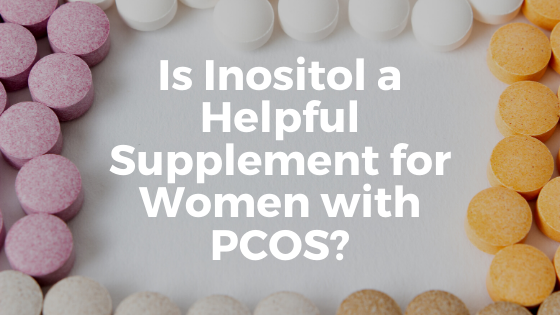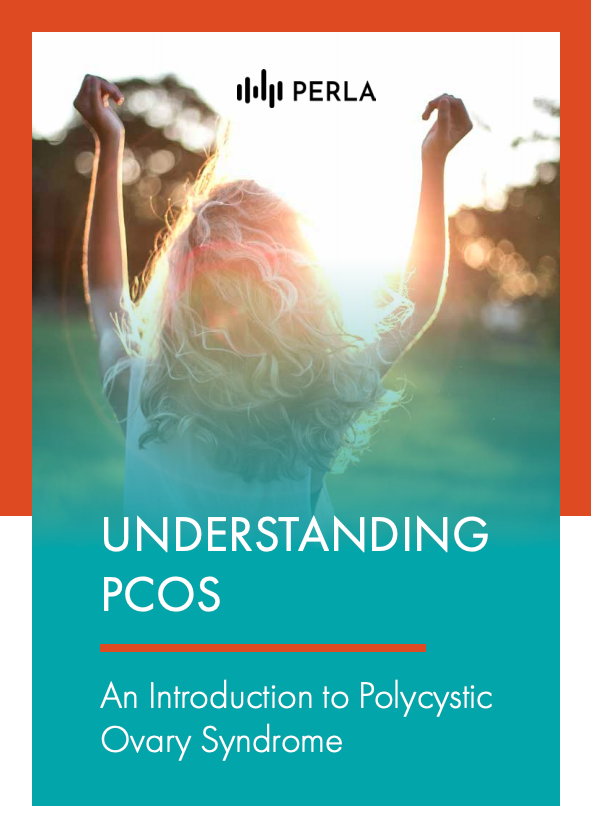Inositol is a vitamin-like nutrient that the body needs in small amounts for normal cell function, growth, and development. Inositol is also considered a popular supplement for women with polycystic ovary syndrome (PCOS), but is it actually helpful? This article will discuss how inositol works and if it can help in the management of PCOS symptoms.
What is Inositol?
Inositol, also known as vitamin B8, naturally occurs in a variety of foods such as fruits, grains, nuts, beans, and organ meats. It is a type of sugar alcohol with half the sweetness of table sugar (sucrose).
Though often referred to as vitamin B8, inositol is considered a pseudovitamin simply because it is not an essential nutrient.1 Its presence is vital in the body but a deficiency does not translate to an actual medical condition. Besides, the body can easily synthesize it from glucose.
Vitamins are considered essential nutrients because the body cannot synthesize enough of them to meet bodily needs and therefore must be obtained from food and supplements.
Why is it Important?
Inositol plays an important role in providing structure to cells and helps in regulating multiple pathways:
- Insulin action2
- Chemical messengers in the brain3
- Lipid metabolism
- Cell growth and differentiation
- Maturation of egg cells
- Fertility4
There are nine different forms or isomers of inositol, but the name is often used to describe only the most common type, myo-inositol. Current evidence suggests that some inositol forms are medically relevant: 5
- Scyllo-inositol (SI) in neurodegenerative diseases
- D-chiro-inositol (DCI) in diabetes
- Myo-inositol (MI) in PCOS and metabolic syndrome
What are the Benefits of Inositol for PCOS?
Even though PCOS cannot be cured currently, there are ways to treat the symptoms. With an underlying hormonal imbalance at play, in addition to chronic inflammation and weight gain, many women struggle to achieve their treatment goals. The use of myo-inositol has become one method to help support the treatment of PCOS symptoms.
So what does research say about the benefits of Inositol for women with PCOS? Even though the most of the studies have been small (which can have an impact on the strength of the evidence), researchers have found the following results:
1. Inositol May Restore Ovulation
A meta-analysis of 10 randomized trials revealed that inositol was associated with improved ovulation rate and increased frequency of menstruation compared with placebo.7
A 2010 study in 42 women with PCOS showed that the use of Myo-Inositol in combination with folic acid resulted in spontaneous ovulation in 65% of the patients with 35% obtaining pregnancy. In the metformin group, by contrast, only 50% ovulated and 18.3% become pregnant.8
2. Inositol May Reduce Testosterone Levels
In lean women with PCOS, D-chiro-inositol decreased free testosterone by 73% with no change in the placebo group. Six of the 10 women in the D-chiro-inositol group ovulated in comparison with 2 of 10 women in the placebo group.9
Results from a double-blind study on the use of Myo-Inositol also showed promising results. In patients treated with Myo-Inositol, the total testosterone decreased from 99.5 to 34.8, free testosterone decreased from 0.85 to 0.24. Improvement in metabolic factors was also reported.10
PCOS patients with acne and hirsutism showed significant improvements after receiving Myo-Inositol for six months.11 Testosterone and free testosterone levels significantly decreased, as well as basal insulin levels.
3. Inositol May Improve Insulin Resistance
D-chiro-inositol is involved in insulin metabolism. Patients with diabetes or impaired glucose tolerance have low levels of D-chiro-inositol in the urine. Both Myo-Inositol and D-chiro-inositol seem to improve insulin sensitivity, especially in women with higher fasting insulin levels (greater than 12 µU/mL).12
The enzyme epimerase converts myo-inositol to d-chiro-inositol. Supplementing with Myo-Inositol alone may have a potentially additive benefit when combined with lifestyle changes in the management of PCOS and insulin resistance.13
4. Inositol May Play A Role in the Prevention of Gestational Diabetes
PCOS is linked with insulin resistance and impaired glucose tolerance, which increases your risk for gestational diabetes. It is a condition in which your glucose levels become high during pregnancy. Although evidence is limited, the use of Myo-Inositol (4 g daily) and folic acid (400 µg daily) throughout pregnancy may help prevent gestational diabetes in women with a family history of diabetes.14
What Type of Inositol is Best for PCOS?
Research shows that Myo-Inositol may have a role in improving menstrual cycles, ovulation, and improving metabolic changes in PCOS. But a combination therapy may also offer additional benefits, such as higher pregnancy rates in women undergoing fertility treatment. 15
Both Myo-Inositol and D-Chiro-inositol showed positive effects on glucose metabolism in different insulin-sensitive tissues. However, they exert opposing effects on ovarian function. In contrast, high D-Chiro-inositol levels showed detrimental effects, increasing the number of immature oocytes. Some authors call it the D-Chiro-inositol paradox.16
It appears that D-Chiro-inositol is only beneficial at a specific ratio with Myo-Inositol. Studies suggest that a ratio of 40:1 Myo-Inositol/D-Chiro-inositol may the best for PCOS treatment in restoring ovulation and normalizing hormone levels.17
So What Does This Mean?
It’s important to keep in mind that these are early studies only, and that the evidence generated may not be as strong due to the small study size and other limitations, but Inositol is considered the most researched supplement.
Inositol even made it into the International Evidence-Based Guidelines for the Assessment and Management of PCOS18, where it’s described as an experimental therapy, highlighting the need for further research. If you’re interested in learning more about Inositol or want to start taking Inositol, make sure to discuss it with your doctor first.
Conclusion
Inositol is one of the most researched supplements for women with PCOS and may have benefits on ovulation patterns and hormone levels. But keep in mind that even though Inositol is considered the most researched supplement, larger studies and more evidence is needed to have a clear understanding of its benefits.
If you’re interested in starting with Inositol, discuss it with your doctor or PCOS care team first, as some supplements can interact with other medications. Your PCOS care team can answer your questions if Inositol could be beneficial to you.
Sources:
- PubChem. Inositol. pubchem.ncbi.nlm.nih.gov. Accessed January 9, 2021.
- Larner J. D-Chiro-Inositol – Its Functional Role in Insulin Action and its Deficit in Insulin Resistance. International journal of experimental diabetes research. 2002;3(1):47–60. doi:10.1080/15604280212528
- Levine J. Controlled trials of inositol in psychiatry. European Neuropsychopharmacology: The Journal of the European College of Neuropsychopharmacology. 1997;7(2):147–155. doi:10.1016/s0924-977x(97)00409-4
- Holub BJ. Metabolism and function of myo-inositol and inositol phospholipids. Annu Rev Nutr 1986; 6: 563-97.
- Majumder AL, Biswas BB Eds. Biology of inositols and Phosphoinositides. 2010; Springer, Berlin.
- Pundir J, Psaroudakis D, Savnur P, et al. Inositol treatment of anovulation in women with polycystic ovary syndrome: a meta-analysis of randomised trials. BJOG: An International Journal of Obstetrics & Gynaecology. 2017;125(3):299-308. doi:10.1111/1471-0528.14754
- Kamenov Z, Gateva A. Inositols in PCOS. Molecules. 2020;25(23):5566. Published 2020 Nov 27. doi:10.3390/molecules25235566
- Raffone E, Rizzo P, Benedetto V. Insulin sensitiser agents alone and in co-treatment with r-FSH for ovulation induction in PCOS women. Gynecol Endocrinol. 2010;26(4):275-280.
- Iuorno, MD MJ, Jakubowicz, MD DJ, Baillargeon, MD J-P, et al. EFFECTS OF D-CHIRO-INOSITOL IN LEAN WOMEN WITH THE POLYCYSTIC OVARY SYNDROME. Endocrine Practice. 2002;8(6):417-423. doi:10.4158/ep.8.6.417
- Costantino D, Minozzi G, Minozzi E, Guaraldi C. Metabolic and hormonal effects of myo-inositol in women with polycystic ovary syndrome: a double-blind trial. European Review for Medical and Pharmacological Sciences. 2009;13(2):105–110. Accessed January 9, 2021. https://pubmed.ncbi.nlm.nih.gov/19499845/
- Zacchè MM, Caputo L, Filippis S, Zacchè G, Dindelli M, Ferrari A. Efficacy of myo-inositol in the treatment of cutaneous disorders in young women with polycystic ovary syndrome. Gynecological Endocrinology. 2009;25(8):508-513. doi:10.1080/09513590903015544
- Genazzani AD, Prati A, Santagni S, et al. Differential insulin response to myo-inositol administration in obese polycystic ovary syndrome patients. Gynecol Endocrinol. 2012;28(12):969-973.
- Tais S. Myo-Inositol in Polycystic Ovarian Syndrome. Natural Medicine Journal. Published June 2013. Accessed January 9, 2021.
- Matarrelli B, Vitacolonna E, D’Angelo M, et al. Effect of dietary myo-inositol supplementation in pregnancy on the incidence of maternal gestational diabetes mellitus and fetal outcomes: a randomized controlled trial. J Matern Fetal Neonatal Med. doi:10.3109/14767058.2013.766691.
- Colazingari S, Treglia M, Najjar R, Bevilacqua A. The combined therapy myo-inositol plus D-chiro-inositol, rather than D-chiro-inositol, is able to improve IVF outcomes: results from a randomized controlled trial. Arch Gynecol Obstet. 2013;288(6):1405-1411. doi:10.1007/s00404-013-2855-3.
- Carlomagno G, Unfer V, Roseff S. The D-chiro-inositol paradox in the ovary. Fertility and Sterility. 2011;95(8):2515–2516. doi:10.1016/j.fertnstert.2011.05.027
- Nordio M, Basciani S, Camajani E. The 40:1 myo-inositol/D-chiro-inositol plasma ratio is able to restore ovulation in PCOS patients: comparison with other ratios. European review for medical and pharmacological sciences. 2019;23(12):5512-5521. doi:10.26355/eurrev_201906_18223
- Teede HJ, Misso ML, Costello MF, Dokras A, Laven J, Moran L, Piltonen T, Norman RJ. Recommendations from the international evidence-based guideline for the assessment and management of polycystic ovary syndrome. Human reproduction. 2018 Sep 1;33(9):1602-18.


